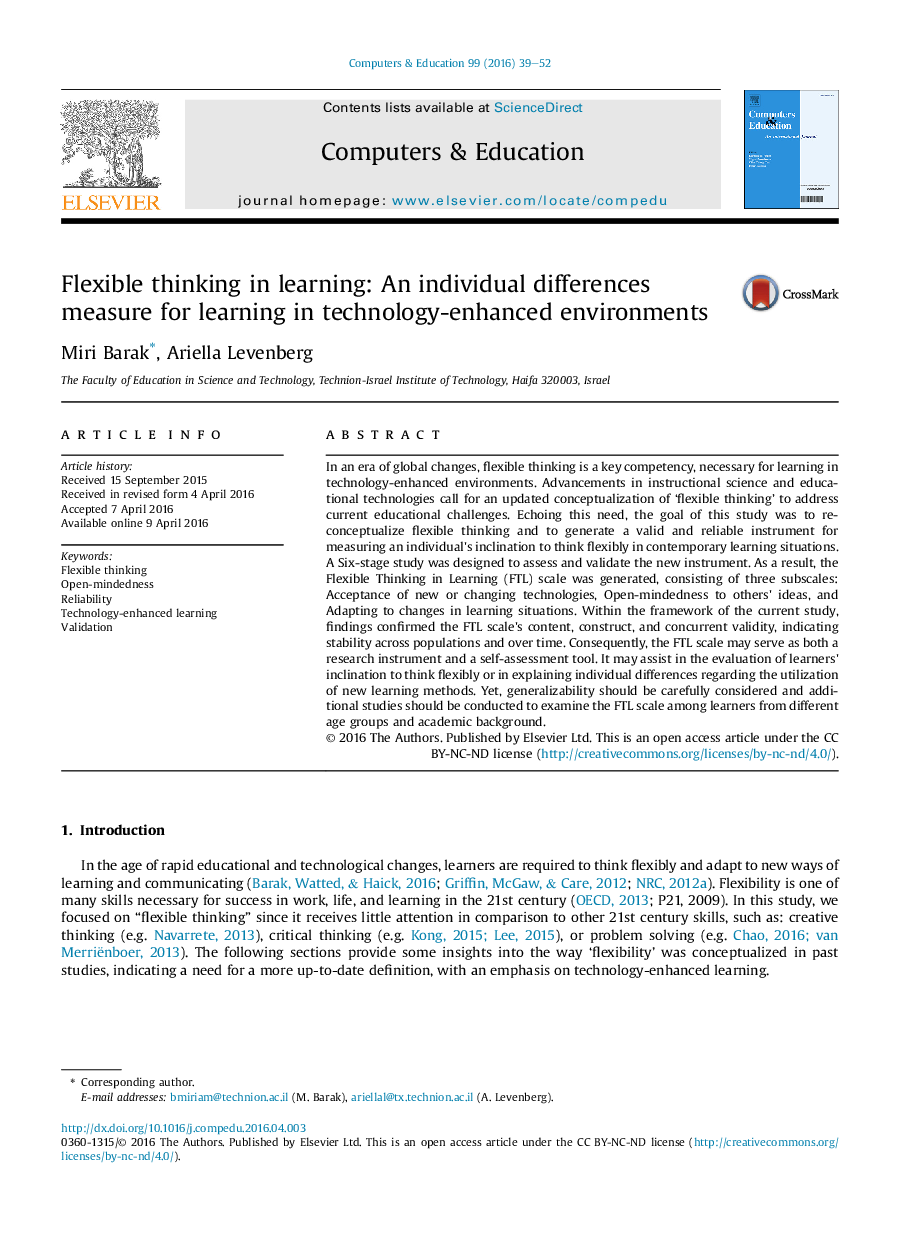| کد مقاله | کد نشریه | سال انتشار | مقاله انگلیسی | نسخه تمام متن |
|---|---|---|---|---|
| 6834855 | 618160 | 2016 | 14 صفحه PDF | دانلود رایگان |
عنوان انگلیسی مقاله ISI
Flexible thinking in learning: An individual differences measure for learning in technology-enhanced environments
ترجمه فارسی عنوان
تفکر انعطاف پذیر در یادگیری: تفاوت های فردی برای یادگیری در محیط های پیشرفته فن آوری اندازه گیری می شود
دانلود مقاله + سفارش ترجمه
دانلود مقاله ISI انگلیسی
رایگان برای ایرانیان
کلمات کلیدی
تفکر انعطاف پذیر، انعطاف پذیری، قابلیت اطمینان، یادگیری پیشرفته فناوری، اعتبار سنجی،
موضوعات مرتبط
علوم انسانی و اجتماعی
علوم اجتماعی
آموزش
چکیده انگلیسی
In an era of global changes, flexible thinking is a key competency, necessary for learning in technology-enhanced environments. Advancements in instructional science and educational technologies call for an updated conceptualization of 'flexible thinking' to address current educational challenges. Echoing this need, the goal of this study was to re-conceptualize flexible thinking and to generate a valid and reliable instrument for measuring an individual's inclination to think flexibly in contemporary learning situations. A Six-stage study was designed to assess and validate the new instrument. As a result, the Flexible Thinking in Learning (FTL) scale was generated, consisting of three subscales: Acceptance of new or changing technologies, Open-mindedness to others' ideas, and Adapting to changes in learning situations. Within the framework of the current study, findings confirmed the FTL scale's content, construct, and concurrent validity, indicating stability across populations and over time. Consequently, the FTL scale may serve as both a research instrument and a self-assessment tool. It may assist in the evaluation of learners' inclination to think flexibly or in explaining individual differences regarding the utilization of new learning methods. Yet, generalizability should be carefully considered and additional studies should be conducted to examine the FTL scale among learners from different age groups and academic background.
ناشر
Database: Elsevier - ScienceDirect (ساینس دایرکت)
Journal: Computers & Education - Volume 99, August 2016, Pages 39-52
Journal: Computers & Education - Volume 99, August 2016, Pages 39-52
نویسندگان
Miri Barak, Ariella Levenberg,
